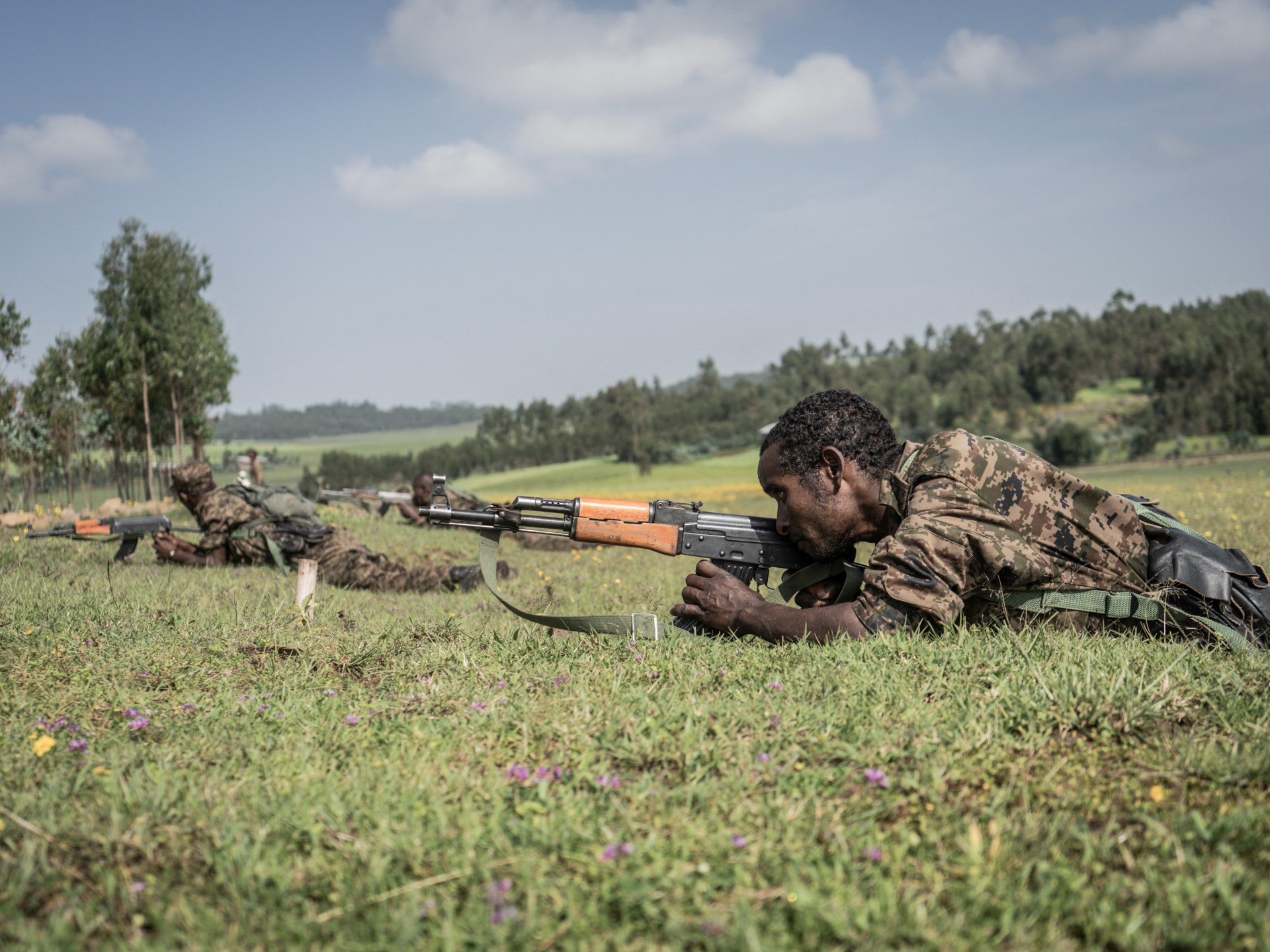Tension returned to the Amhara region with the exchange of accusations between the Ethiopian government and the Tigray Liberation Front, and the United States, the European Union, the United Nations and the African Union rushed to call on the two parties to stop the fighting.
The Tigray Front denied the Ethiopian government's claim that it had shot down a plane carrying weapons for its forces, and added in a tweet that Ethiopian Prime Minister Abiy Ahmed was looking for a justification for his ongoing campaign of what it described as genocide.
The Front considered that Abi Ahmed lays the groundwork for air attacks on Tigray, and called on the international community to intervene to prevent it.
On Wednesday, the Ethiopian Air Force announced the shooting down of a plane that it said was carrying weapons to be delivered to the Tigray Front from Sudan.
The Ethiopian government also accused the Tigray Front on Wednesday of launching an attack on the eastern front in the Amhara region, considering that the attack was a violation of the 5-month-old ceasefire, and held the group responsible for the consequences.
International calls for calm
For its part, the US State Department called on all parties in Ethiopia to redouble efforts to achieve a permanent ceasefire.
Foreign Minister Anthony Blinken expressed his country's concern over the renewed hostilities in Ethiopia, and said in a statement that a return to conflict would lead to widespread suffering, human rights violations and more economic hardship.
Blinken called on the Ethiopian government and the Tigray Front to redouble efforts to move forward with talks to achieve a permanent ceasefire without preconditions.
Blinken affirmed his country's commitment to Ethiopia's unity, sovereignty and territorial integrity, and that it is ready to work with all Ethiopians to overcome the challenges facing their country.
The European Union's High Commissioner for Foreign Affairs and Security, Josep Borrell, also warned that the situation in Ethiopia could slide into all-out war again in light of renewed fighting in the north of the country.
Borrell, in his tweet, called on all parties there to calm down, adding that now is the time for peace talks, as he put it.
Reports of conflict in Northern #Ethiopia cast a shadow on the prospect for peace.
I call on all parties to deescalate the situation before it turns again into a full blown war.
Now is the time for peace talks.
#Tigray #AUEU
— Josep Borrell Fontelles (@JosepBorrellF) August 24, 2022
In turn, UN Secretary-General Antonio Guterres expressed his concern over the resumption of hostilities in Ethiopia and called for an immediate ceasefire and the resumption of peace talks.
@antonioguterres strongly appeals for an immediate cessation of hostilities in Ethiopia and for the resumption of peace talks between the government and the TPLF.
pic.twitter.com/TBnKq8Wp8N
— UN Spokesperson (@UN_Spokesperson) August 24, 2022
African Union Commission Chairperson Moussa Faki expressed his "deep concern" over the renewed fighting in Ethiopia, and called in a statement "for an immediate cessation of hostilities and the resumption of talks in pursuit of a peaceful solution."
Faki affirmed the African Union's continued commitment to work with the parties to the conflict to support a consensual political process for the benefit of the country, calling on both sides to communicate with the Union's envoy for the Horn of Africa, Olusegun Obasanjo.
Obasanjo is leading international efforts to end the 21-month conflict in northern Ethiopia between the Tigray Front and government forces.
And last March, the Ethiopian government announced an open humanitarian truce with the militants of the Tigray Front, with the aim of ensuring the free flow of emergency humanitarian aid to the conflict areas in the north of the country, and since then aid began to flow into the region.

